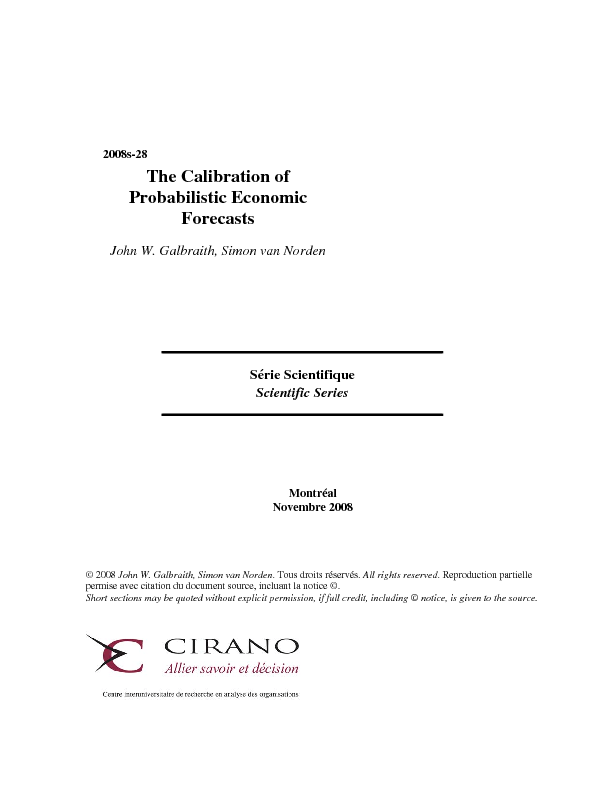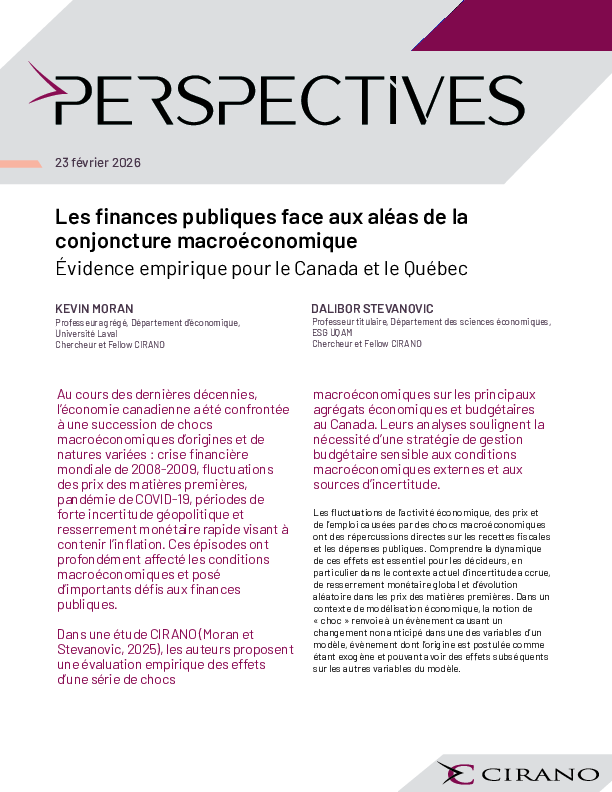The Calibration of Probabilistic Economic Forecasts
A probabilistic forecast is the estimated probability with which a future event will satisfy a specified criterion. One interesting feature of such forecasts is their calibration, or the match between predicted probabilities and actual outcome probabilities. Calibration has been evaluated in the past by grouping probability forecasts into discrete categories. Here we show that we can do so without discrete groupings; the kernel estimators that we use produce efficiency gains and smooth estimated curves relating predicted and actual probabilities. We use such estimates to evaluate the empirical evidence on calibration error in a number of economic applications including recession and inflation prediction, using both forecasts made and stored in real time and pseudoforecasts made using the data vintage available at the forecast date. We evaluate outcomes using both first-release outcome measures as well as later, thoroughly-revised data. We find strong evidence of incorrect calibration in professional forecasts of recessions and inflation. We also present evidence of asymmetries in the performance of inflation forecasts based on real-time output gaps.
[ - ]




